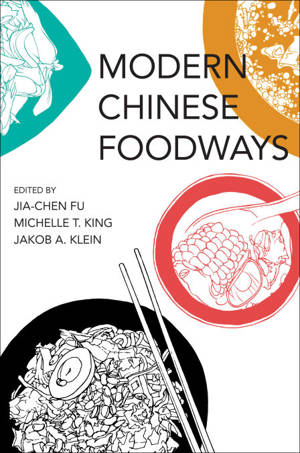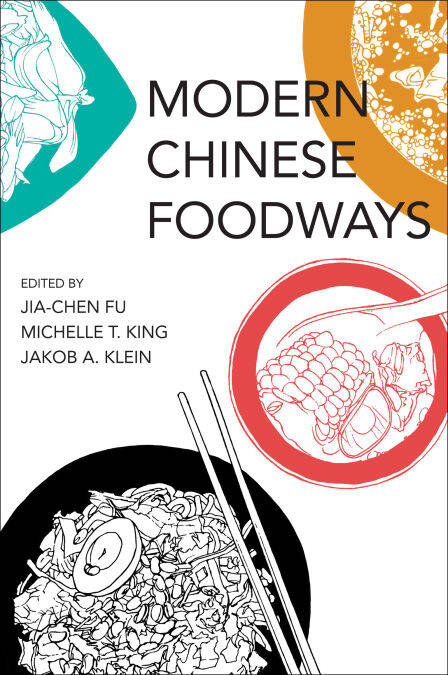
- Afhalen na 1 uur in een winkel met voorraad
- Gratis thuislevering in België vanaf € 30
- Ruim aanbod met 7 miljoen producten
- Afhalen na 1 uur in een winkel met voorraad
- Gratis thuislevering in België vanaf € 30
- Ruim aanbod met 7 miljoen producten
Zoeken
Modern Chinese Foodways E-BOOK
€ 59,14
+ 59 punten
Uitvoering
Omschrijving
An edited collection that explores the multifaceted experiences of Chinese culinary modernity both within and outside of mainland China from the mid-19th century to present.
Modern Chinese Foodways defines some of the major processes by which Chinese food and foodways have become modern, with a focus on the period from the mid-nineteenth to the twenty-first century. The editors, Jia-Chen Fu, Michelle T. King, and Jakob A. Klein, highlight four prominent areas of change: commodification of food production; the scientization of expertise and the development of new food technologies; the creation of new culinary identities based on gender, ethnicity, and nation; and the circuits of migration taking place since the nineteenth century.
This collection argues that Chinese food and foodways are very much modern—not a given in the face of the chorus of voices that insists on emphasizing its ancient roots—in ways that both recall the experiences of other cultures, as well as in ways unique to China’s own historical trajectory.
The book combines incisive, original scholarship by thirteen leading voices in the field with editorial essays on the past and future of Chinese food studies to frame the field of inquiry for the next generation of Chinese food studies scholars. Demonstrating the significance of modern Chinese foodways to the phenomenon of culinary modernity writ large, which is still largely shaped by Euro-American perspectives and priorities, Modern Chinese Foodways is the first book of its kind.
Modern Chinese Foodways defines some of the major processes by which Chinese food and foodways have become modern, with a focus on the period from the mid-nineteenth to the twenty-first century. The editors, Jia-Chen Fu, Michelle T. King, and Jakob A. Klein, highlight four prominent areas of change: commodification of food production; the scientization of expertise and the development of new food technologies; the creation of new culinary identities based on gender, ethnicity, and nation; and the circuits of migration taking place since the nineteenth century.
This collection argues that Chinese food and foodways are very much modern—not a given in the face of the chorus of voices that insists on emphasizing its ancient roots—in ways that both recall the experiences of other cultures, as well as in ways unique to China’s own historical trajectory.
The book combines incisive, original scholarship by thirteen leading voices in the field with editorial essays on the past and future of Chinese food studies to frame the field of inquiry for the next generation of Chinese food studies scholars. Demonstrating the significance of modern Chinese foodways to the phenomenon of culinary modernity writ large, which is still largely shaped by Euro-American perspectives and priorities, Modern Chinese Foodways is the first book of its kind.
Specificaties
Betrokkenen
- Uitgeverij:
Inhoud
- Aantal bladzijden:
- 360
- Taal:
- Engels
- Reeks:
Eigenschappen
- Productcode (EAN):
- 9780262381659
- Verschijningsdatum:
- 3/03/2025
- Uitvoering:
- E-book
- Beveiligd met:
- Adobe DRM
- Formaat:
- ePub

Alleen bij Standaard Boekhandel
+ 59 punten op je klantenkaart van Standaard Boekhandel
Beoordelingen
We publiceren alleen reviews die voldoen aan de voorwaarden voor reviews. Bekijk onze voorwaarden voor reviews.







